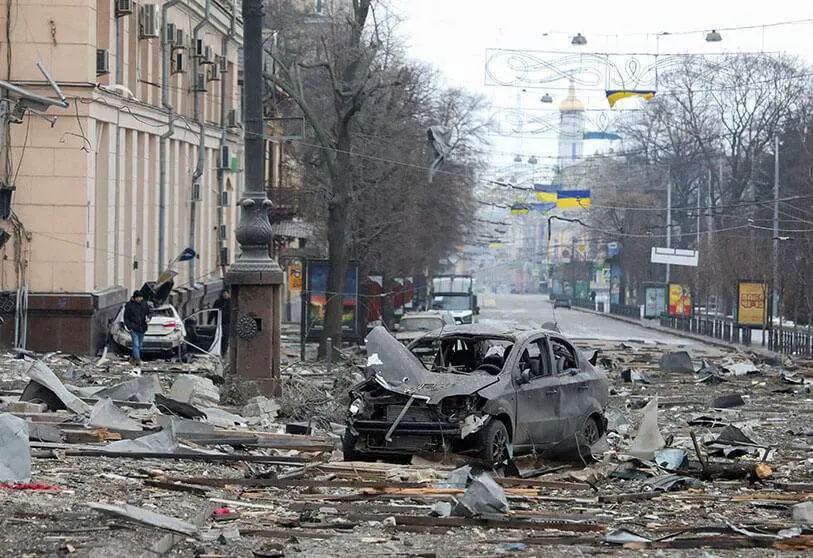Values Alliance and Paz Mediterranean

Thinking of the Mediterranean as a horizon of peace would be practically impossible without the tools to design an Alliance of Values. Knowing the facts of the past helps to explain the facts of the present. The history of humankind has been littered with wars of conquest, a breeding ground for the confrontation between "good" and "evil". Focusing on the 19th century and the first decades of the 20th century, the great colonial expeditions took place across the Mediterranean, conquering Africa, the Orient and Arabia, driven by the discovery of the unknown, inhabited by human beings who were heirs to ancestral cultures and "natural" human values, in principle common to the entire human race. Colonisation clouded the history of the colonised peoples and thus the colonisers' own history, as well as the possibility of the encounter of humanist values from one side and the other. It is true that the Mediterranean, in its own history, was never a space of peace, but rather a space of war, which was also a space of return and return. The argument was to dominate the "unknown other" and conquer an equally unknown space. To this end, the expeditionary imposed "his worldview", his model, his law, his school, his religion and discovered the benefits of the extractive economy, drawing arbitrary borders, dividing peoples, ethnic groups and local kingdoms. Undoubtedly, animosities and deep wounds arose that are perpetuated to this day in the collective memory of the people's time. Understanding this frame of reference is essential to create new instruments to prevent the Mediterranean from once again becoming a basin of war, as the Balkans and the war in Ukraine, which seemed unimaginable in the heart of Europe, once again became.
The fog must be lifted from the Mediterranean and African countries as a precondition for establishing a deep-rooted peace plan with human values that can be a common denominator. The dignity of each person, freedom, a certain amount of equality and fraternity based on mutual trust, undoubtedly call for a change of mentalities and a "co-operation" back and forth in the direction of investments and economic and social development; a revision of globalisation without cultural damage. The school as an instrument of peace must contribute to dispel the mists of history with an effort by all the countries bordering the Mediterranean, and those of Africa, to move towards a cordial entente. These tools would be preceded by the Universal Declaration of Human Rights, which would be complemented, in its personal rights, by other rights of an economic and social nature. With these ingredients, which some would describe as utopian but which are the minimum to avoid conflicts and the objective conditions for future wars, the Mediterranean and Africa would have to be "rethought" within the framework of an Alliance of Values, with basic programmes of comparative education, the history of philosophy and the history of science, as well as the comparative history of religion, beliefs and myths. I believe that this is the only way, in the medium and long term, to avoid the alternatives of war, including hybrid warfare, as well as the nebulae of terrorism. A massive investment plan is needed for the development of Africa and its Mediterranean neighbours. The presence of China and Russia in this vast area is another significant fact for Europe and the West to implement not only a Euro-Africa Plan for development and respect for territorial integrity - (a war in the Mediterranean, in addition to the human catastrophe, would entail incalculable economic costs) - but also to begin to lay the foundations and develop the basis for defining an Alliance of fundamental values. The United States is indispensable as the first partner of many Mediterranean countries. The Alliance of Human Values should be the compass of global Mediterranean politics, including those that seek peace by defensive means.
Trade exchanges and the mechanisms of a non-laminar globalisation cannot be maintained in peace, in the medium or long term, without the reciprocal recognition of the human values of each people that converge in the universal. It seems necessary to define a new horizon of thought for exchanges back and forth between all Mediterranean peoples in order to establish a lasting peace based on respect for the dignity and freedom of the "other", two-way cooperation and recognition of the various forms of democratic organisation based on the diversity of cultural facts. This enormous challenge implies an in-depth task for a comparative education that revises the structures, methods and contents of school textbooks in order to get to know the "other" better, once it has been stripped of the recurrent burden of stereotypes perpetuated by the wars of the past. Realistically, the echo of the war in Ukraine, with the Russian Federation as the "aggressor", is a wake-up call for the Mediterranean and Euro-African space. The search for an Alliance of Human Values, as a common framework, is, I think, the most solid way to modulate international relations and create spaces for coexistence and peaceful coexistence.
Francisco J. Carrillo. Corresponding Academician of the Royal Academy of Moral and Political Sciences.
